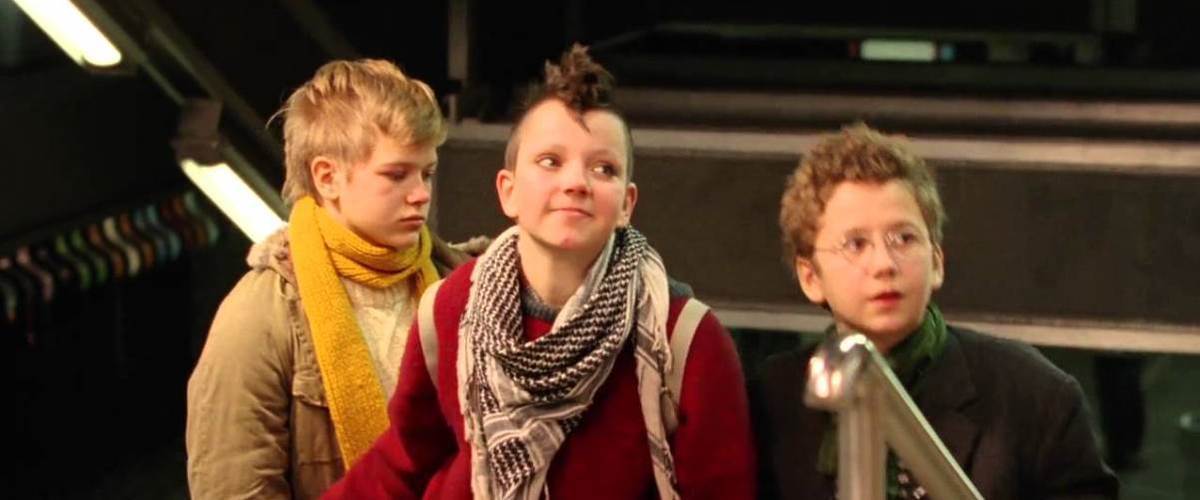We Are the Best! is disarmingly sweet, and utterly subdued for a film about a trio of Swedish youngsters forming a (pretty hapless) punk band in the early 1980s. The girls rail about sports and conformity within the confines of one of the model welfare-states of post-War Northern Europe. They vie for a spot in a local practice space with a somewhat older metal band and negotiate unrequited crushes and parents who seem utterly childish themselves, but none of this is dealt with in a brutal fashion. Instead it does pinpoint with deadly accuracy the queasy interpersonal relations of adolescence, such as who is controlling whom, which haircuts are worthy of being “punk enough,” and when not to vomit on an older sibling’s record collection. Now showing at the Penthouse Cinema in Wellington.
Newest CIRCUIT CAST Episode 15 just posted which features a live discussion at the Wellington City Gallery hosted by Mark Amery, with writer Thomasin Sleigh and myself as panelists. Also includes segments on Simon Denny at the Adam Art Gallery, and the artist-run space Gloria Knight in Auckland.
A great clip from from "Songs for Cassavetes" doco (2001, dir. Justin Mitchell). Singer Corin Tucker: "The ways that capitalism has affected music is so repulsive to me, that it's created the idea of music as...y'know, the only interest people have in it is really, bottom line, what will sell."
Tonight the City Gallery Wellington is hosting another of their monthly Tuatara open late evenings, with much on board, including a film screening, DJ sets, live music from the Balkanistas, and to lead off the evening a 530 live presentation of this month's CIRCUIT podcast, organized by Mark Williams, hosted by Mark Amery, and featuring Thomasin Sleigh and myself as panelists. We will be discussing the William Kentridge video installation currently on view. You can consult the full line up here.
My experience of reading American critic Dave Hickey’s newest collection of essays Pirates and Farmers alternated between being rather infuriating and intensely enjoyable. The former comes in when the author writes far too much about the “good old days” as if nothing culturally significant has happened since the drugged up Stones holed up in the south of France to record Exile on Main Street. The latter emanates from the author’s formidable ability to construct memorable, contentious prose. On the whole, working critics are piecemeal writers and Pirates and Farmers is a well-designed small book of talks, editorial pieces, and catalogue essays written over the period 1999-2013, linked mostly via the author’s highly identifiable style. Hickey isn’t a generic critic, but on occasion he tends to serve up “generic Hickey.” His earlier, critically-lauded book Air Guitar is not dissimilar in its construction, but more convincing in its subtlety. Hickey’s addiction to the one-liner, valorisation of the glitz of Las Vegas, and sometimes lurid, anachronistic artworks can mar his otherwise deft and careful writing. He is a showman, but these days often congratulates himself on his own performance rather than speaking towards the works of others, unless part of his long-standing, occasionally idiosyncratic canon (Ruscha, Kelly, Warhol, Ruskin, Mitchell). The title essay in which the author divides the general populace (and of course artists) into two typological categories, farmers who “build fences and control territory,” and pirates who “tear down fences and cross borders” is fuel for a nice party game, as this system is actually pretty sound. But what do I know anyway, being a critic who works in the academic environment, yet another one of Hickey’s favourite targets.
Artist Luke Willis Thompson according to all my energetic Twitter sources just won Aotearoa New Zealand's 2014 Walters Prize, announced by juror Charles Esche at the Auckland Art Gallery. Congratulations to Luke and all the other finalists: Simon Denny, Maddie Leach, and Kalisolaite 'Uhila. Certainly much more to come....







